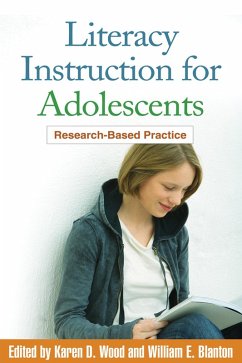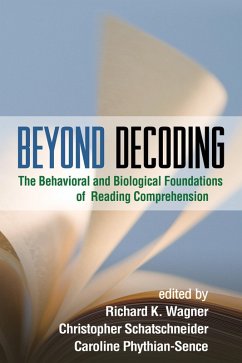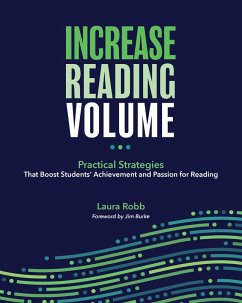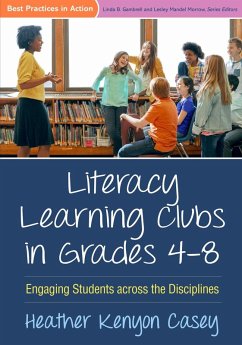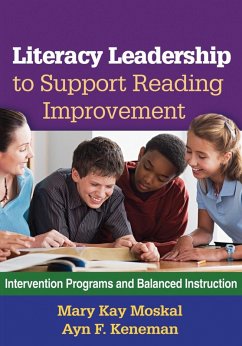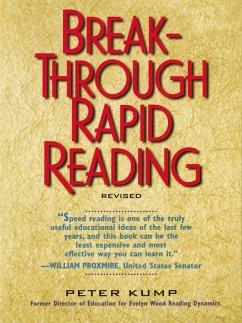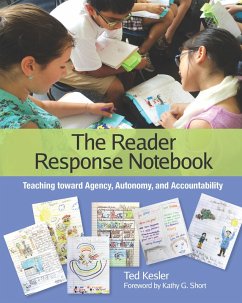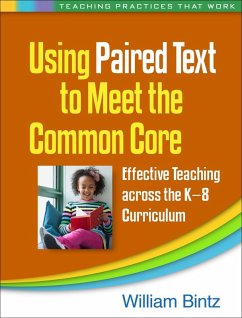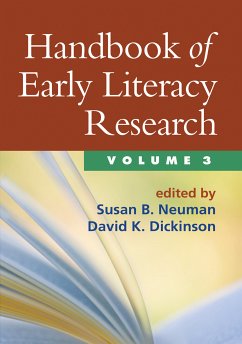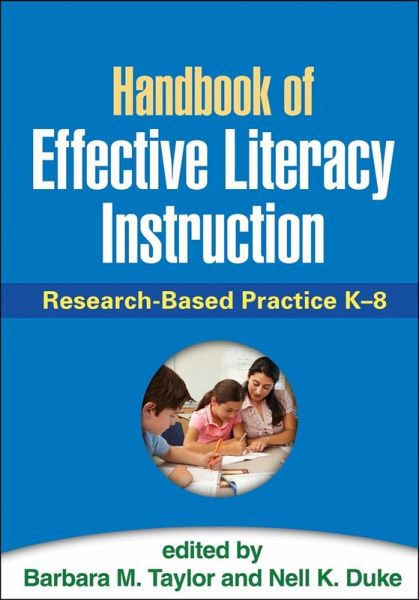
Handbook of Effective Literacy Instruction (eBook, ePUB)
Research-Based Practice K-8
Redaktion: Taylor, Barbara M.; Duke, Nell K.
Versandkostenfrei!
Sofort per Download lieferbar
49,95 €
inkl. MwSt.
Weitere Ausgaben:

PAYBACK Punkte
25 °P sammeln!
This highly readable handbook synthesizes the best research on K-8 literacy instruction and distills key implications for classroom practice. Noted contributors provide clear recommendations for creating effective, motivating classroom environments; teaching core components of literacy; integrating literacy with content-area instruction; and building a schoolwide literacy program that helps all students succeed. Helpful figures, tables, resource lists, reflection questions, and concrete examples from real classrooms make the book an ideal tool for teacher training and professional development....
This highly readable handbook synthesizes the best research on K-8 literacy instruction and distills key implications for classroom practice. Noted contributors provide clear recommendations for creating effective, motivating classroom environments; teaching core components of literacy; integrating literacy with content-area instruction; and building a schoolwide literacy program that helps all students succeed. Helpful figures, tables, resource lists, reflection questions, and concrete examples from real classrooms make the book an ideal tool for teacher training and professional development. Numerous reproducible worksheets and checklists can be downloaded and printed in a convenient 8 1/2" x 11" size.
Dieser Download kann aus rechtlichen Gründen nur mit Rechnungsadresse in A, D ausgeliefert werden.




